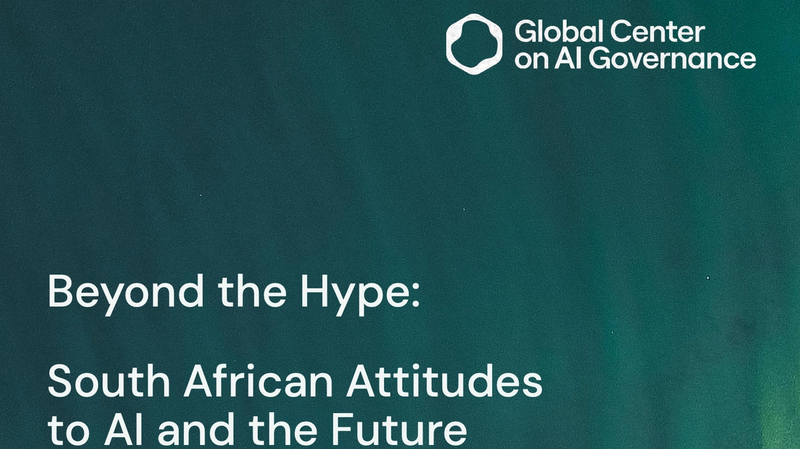
Beyond the Hype: South African Attitudes to AI and the Future
AI and Society
Authors
Leah Junck, Fola Adeleke, Rachel Adams, Imani Maliti , Dr Benjamin Roberts, Dr Odilile Ayodele, Dr Paul Plantinga and Dr Michael Gastrow
Published Sep 8, 2025
This report details the findings from a nationally representative survey on public attitudes toward AI in South Africa, conducted between February and March 2025. The primary objective was to understand how a diverse population perceives and interacts with AI technologies.
The key takeaways from the paper are:
- Limited Awareness and Informal Learning: The majority of South Africans (over 70%) have very little to no familiarity with the term "artificial intelligence." What little knowledge they do have is primarily sourced from informal channels, such as social media (40%) and television/radio (37%), with formal education playing a minimal role.
- Pragmatic Hopes and Economic Anxiety: The public's vision for AI is grounded in practical applications. The most anticipated positive impacts are improvements in health and wellbeing (43%) and greater free time due to automation (41%). However, this optimism is tempered by deep-seated economic anxiety, with job displacement being the overwhelming concern for nearly 70% of respondents. Other significant fears include an over-reliance on machines and a loss of personal privacy.
- Cautious Trust in Institutions: While there is general trust in the government to use AI in key public sectors like education and healthcare, there is a clear demand for human oversight. Similarly, the public's trust in big tech companies is pragmatic and contingent on their ability to create new jobs and expand digital access. These findings underscore a strong desire for accountability and transparency in the development and deployment of AI systems.







